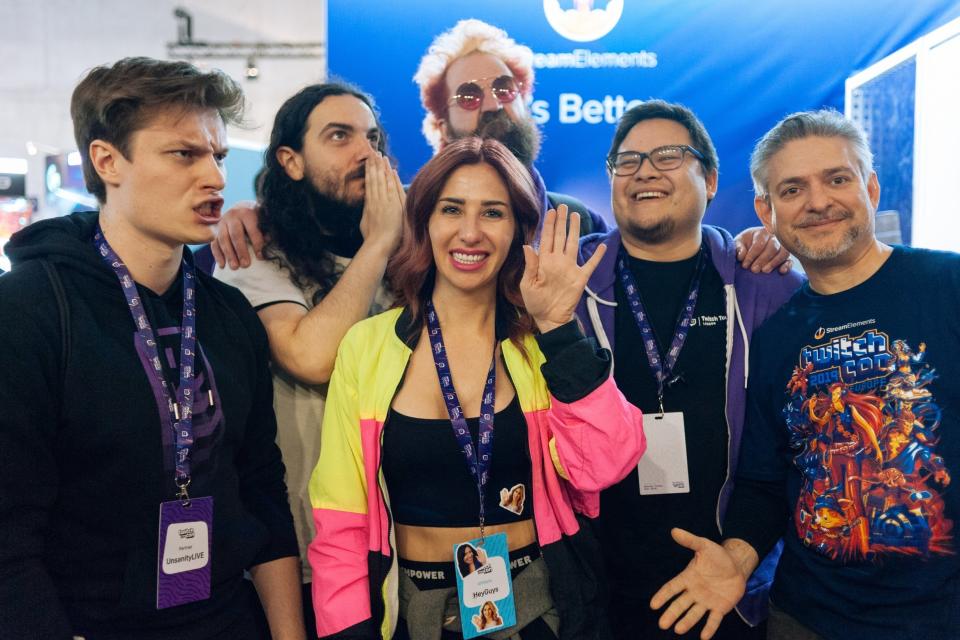Going live: Behind the camera with Emmett Shear, CEO of Twitch
With the clarity afforded by hindsight, Emmett Shear — CEO of live-streaming platform Twitch — is explaining how disastrous his first incarnation of the company was. “We initially started out trying to make a reality television show of my friend Justin’s life,” says Shear, describing the central concept behind his and co-founder Justin Kan’s goofy, Truman Show-style 2007 site, Justin.tv.
“But the key to reality television, and I hope I don’t ruin this for anyone, is editing.”
Shear chuckles, stubbly and poised in a Berlin meeting room above the venue for the first European edition of the annual symposium TwitchCon. “Live reality TV is super-awkward because you don’t have the ability to edit out all the boring bits. So that approach didn’t work at all — but we learned a lot from it.”
Fast-forward 12 years from Kan yammering in his bedroom and wearing a headcam to local bars and things could scarcely be different. Having been acquired by Amazon in 2014 for an industry-shaking $970 million, Twitch — which predominantly broadcasts footage of its streamers playing video games — is now one of the hottest properties in tech.
It attracts more than 15 million daily visitors. Its biggest streamers can earn as much as $500,000 a month from subscription payments and ad revenue. And you could arguably trace the entire, multi-billion-pound, floss-dancing phenomenon of Fortnite to the moment in March 2018 when Twitch superstar Tyler “Ninja” Blevins streamed a game with Drake.
Shear himself — a San Francisco-based Yale graduate who succeeded Kan as boss in 2011 — is thought to have personally made $100 million from the Amazon sale.
Now Twitch is moving beyond video games, with popular streams devoted to cooking, karaoke, arts and crafts and even “Twitchhikers”, who cadge lifts and broadcast the results. It is, in short, a puzzlingly massive deal.

And so the only question, really, is how did this all happen? How did the act of watching strangers performing decidedly ordinary tasks become a near-billion dollar business?
“We didn’t know it when we started but we stumbled on something that we’re now calling ‘multiplayer entertainment’,” says Shear. “Normally when you’re watching a video it can be quite isolating. But the engine that powers Twitch is the streamer and the community, interacting and coming together to create something.”
Watch any Twitch live stream and you will see this to be true: a chatty, charismatic person rapidly talks to camera, responding to the questions, messages and memey in-jokes that scroll up the right of the page. And, increasingly, these real-time back-and-forths are occurring around unexpected pieces of content.
A channel called ClimateFortnite sees meteorologists fielding questions about how best to save the planet in between blasting weapons. And Shear is particularly surprised about the growing success of streams where artists painstakingly decorate miniature figurines. “You’re literally watching paint dry,” laughs Shear.
Twitch Sings, a new free PC game that lets you belt out a library of almost 2,000 familiar karaoke tunes as viewers interact and set you additional challenges, is what Shear calls a “surprising and cool” attempt to capitalise on some of this strangeness.
It’s a determinedly wholesome and appealingly silly innovation but it comes at a time when live streaming as a corruptible concept is under intense scrutiny. Following the horrifying Facebook Live stream of March’s New Zealand terror attacks, Mark Zuckerberg’s company announced it is “exploring restrictions” to real-time broadcasts.
Though Twitch’s bans tend to relate to nudity and abusive language, is Shear thinking about Silicon Valley’s increased responsibility? “The future of the internet is going to require anyone providing communication services to think really carefully about what kind of things are welcome,” he says.

“One of the most important [recent] changes we made at Twitch was to move from an objective, behaviour-based standard to an intent-based standard for what content is welcome. I think a lot of services fall into the trap of trying to write down exactly which things are allowable and not allowable in a way that can be enforced by a robot. I just don’t believe that that is how human beings work.”
Without mentioning them by name, Shear questions the logic of Instagram’s controversial stance on female nudity. “It’s super-important that we’re not like, ‘Well nipples are illegal but non-nipple content is fine’,” he says. “Services that attempt to do that have given themselves a really impossible job.”
This reference to the Facebook-owned video and image-sharing platform may be a pointed jab at a sudden competitor. Instagram added Twitch-style live streaming in 2016. And in 2015 YouTube unveiled its own gaming-focused, real-time rival.
Shear is clearly trying to stay ahead of these other big beasts with the likes of Twitch Sings, streamed sports matches and kitschy, watch-along marathons of the likes of Pokémon and Bob Ross’s The Joy of Painting. But does he worry about being shoved off the live-streaming throne?
“We kind of welcome people coming in and making their own version of it,” he says, breezily. “Our solution is to focus on how to make Twitch better for streamers. If you let yourself get distracted by the competition you just wind up chasing things that everybody else is doing.”
Spoken like a man who tried to create a jokey EdTV knock-off and accidentally ended up revolutionising internet-age entertainment.
Twitch Sings is available to download for free at twitch.tv/sings

 Yahoo News
Yahoo News 